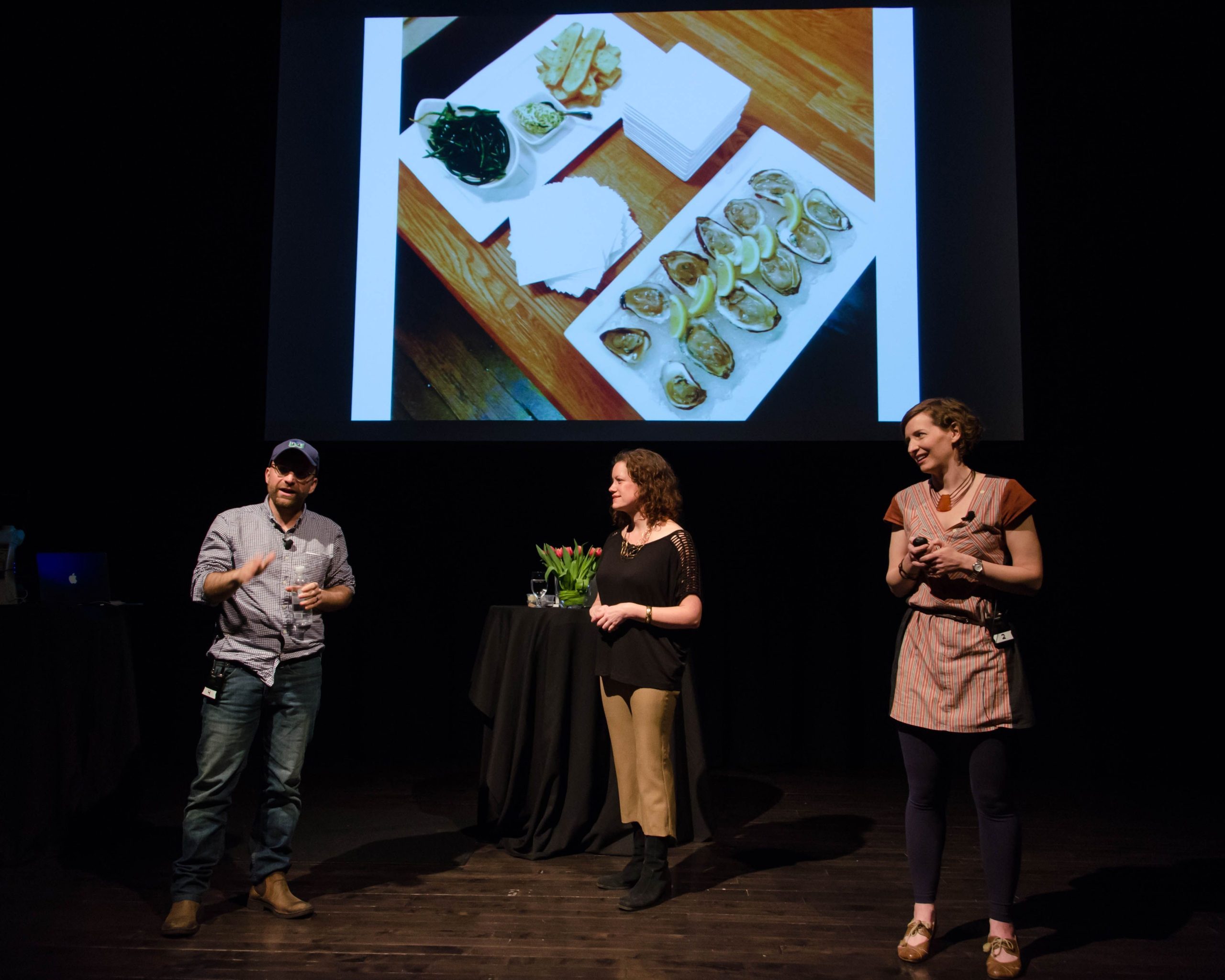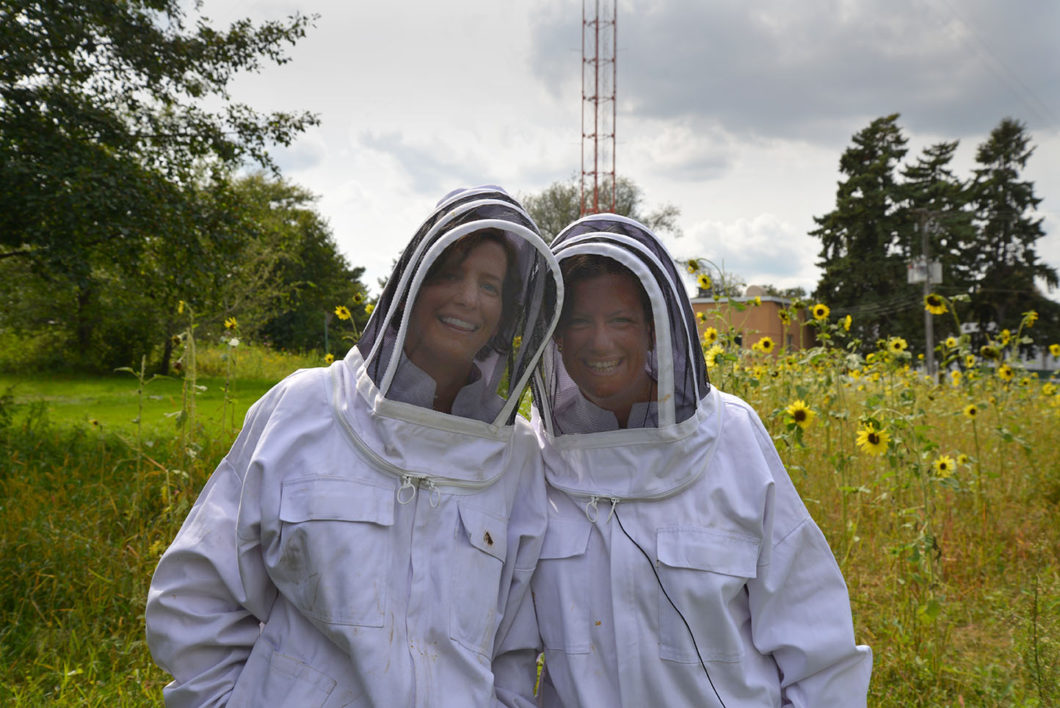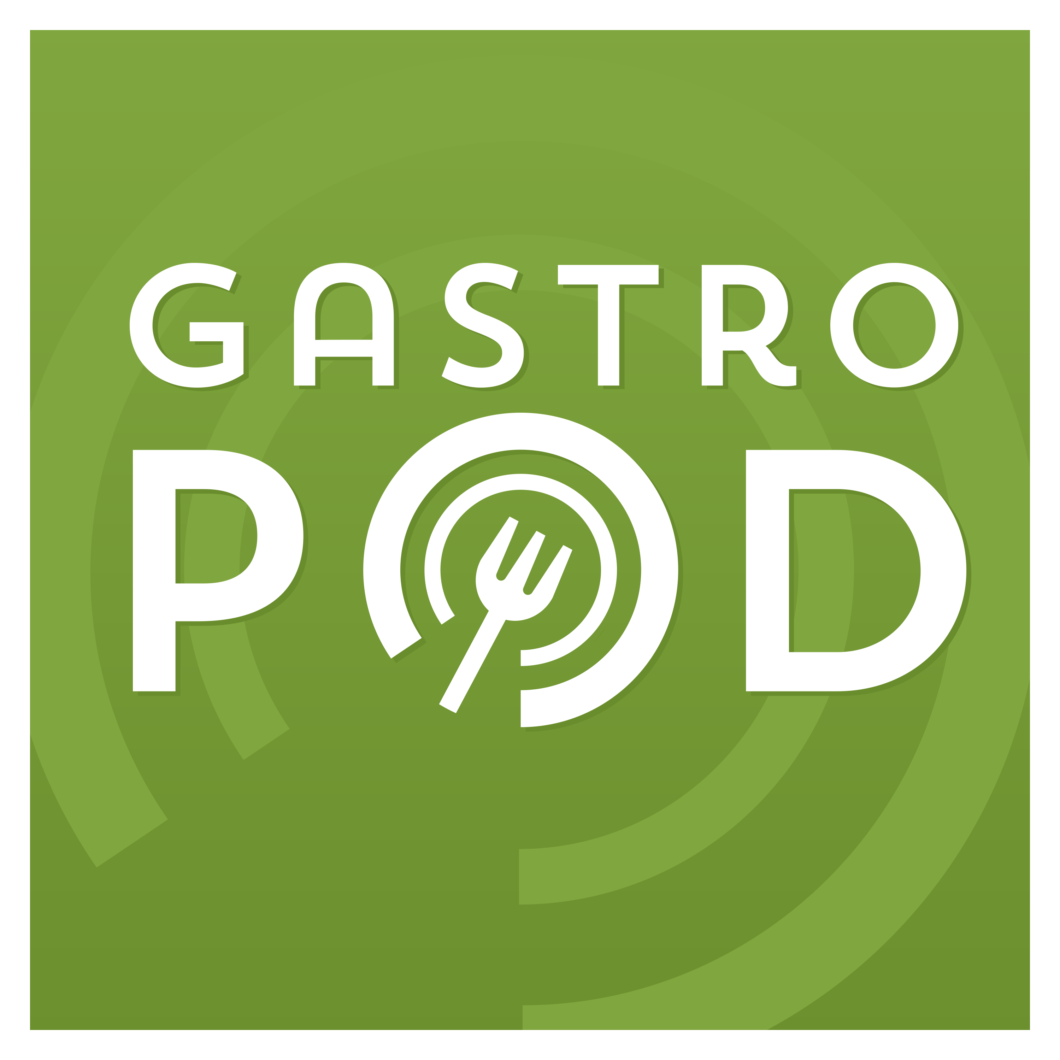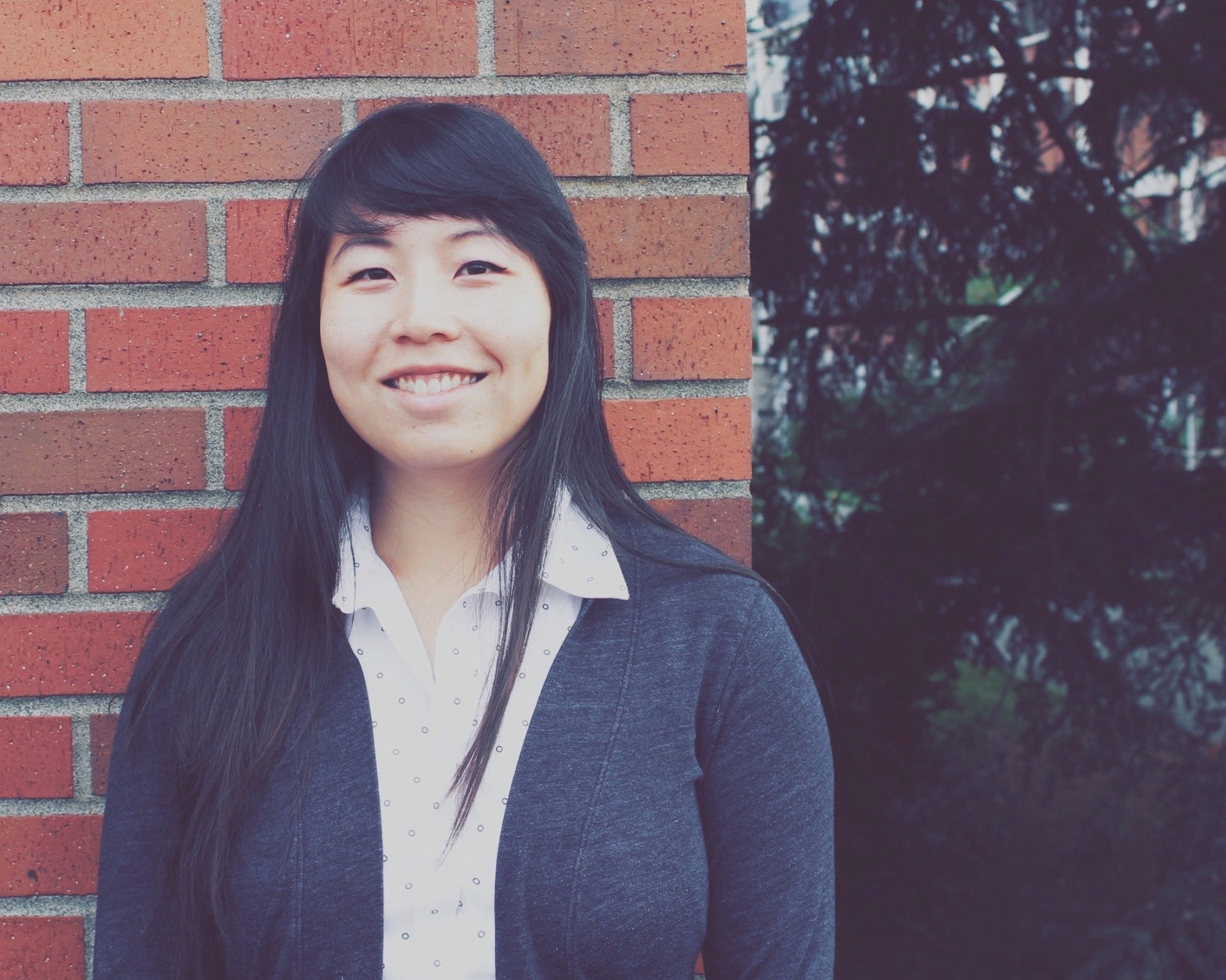
The podcast world is booming, and so is its audience. According to the Pew Research Center, the percentage of adults who’ve plugged into a podcast has more than doubled since 2008, from 9 percent to more than 20 percent. By combining the intimacy of the spoken voice with the ease of hands-free, on-demand entertainment, podcasts have become a favorite medium of storytellers and dedicated listeners alike.
Two years ago, journalists Cynthia Graber and Nicola Twilley launched Gastropod, a popular podcast that looks at food through the dual lens of science and history. Graber, a radio veteran, and Twilley, a food writer at The New Yorker and creator of the blog Edible Geography, regularly nerd out about subjects such as the science of kombucha, the history of fried chicken, the boom in maple syrup, and other stories about the things we eat. Here, Jane Hu talks with them about why they created Gastropod, how they make episodes, and why food science pairs so well with podcasts. (This interview has been edited for length and clarity.)
How did Gastropod start cooking?
Graber: I was obsessed with food, but it wasn’t my primary focus, and I was thinking about launching my own podcast. I came up with a lot of different ideas and realized my ongoing obsession was at this intersection of food science and history.
Nicky and I had met through the first 11th Hour Food & Farming Journalism Fellowship at UC Berkeley, established by Michael Pollan. We had become friends; we liked each other’s work and trusted each other’s opinions. I sent her the idea for the podcast, and she asked, “So are you open to having a cohost?”
Twilley: No, I didn’t say that! I said, “I think you need a cohost.” I was having a terrible morning, and I was in somewhat of a ballsier mood than usual. I said, “You need a cohost and really, the only one you can have is me.”

Why did you choose a podcast as Gastropod‘s medium, instead of a series of articles or a blog?
Twilley: We wanted to be a show that you could listen to without being a foodie, or someone who loves cooking. We wanted to make a show that left people wanting to race out the door and say, “Did you know X, Y, and Z?”
Graber: Podcasts are an amazing way to connect directly with your audience, in a different way than print does. People literally hear your voice—they connect to you as a person who’s telling a story, and they come back time and again because they trust you. It’s a way to get into people’s heads—and their living rooms and their kitchens. When people really connect with a podcast, they tend to be loyal listeners and listen to each episode. If a topic seems weird, they’ll listen anyway because they trust that journey they’re going to go on with you.
Everybody eats, and there are so many different ways to tell stories about science and history through food.
How does creating a podcast differ from writing a feature?
Graber: There are ways you have to use sound to help bring the scene to life that are different from print. For instance, we just released an episode about Native American food that took place in a field. We captured the walking and the rustling of the fields—we even got the chickens, though we didn’t end up using them in the final episode.
Walking through a field.
When someone was showing us their precious seed collection, we made sure to spin the bottles and run the seeds through our hands to make sure the seeds made sound.
Seed sounds.
Twilley: Plus, in writing, if the person doesn’t say the specific thing you want them to say, you can still report the idea. But when we’re recording for Gastropod, we really need the person to say it. There’s a sort of art to get people to say the thing you want them to say without saying it yourself.
It usually comes down to being a little more abstract [with your questioning]. For example, if someone has a really wonderful anecdote about crocodiles being fed on honey in Ancient Egypt, if you say, “Can you tell us what crocodiles were fed on in Ancient Egypt?” the average, non-radio-or-TV-trained interviewee will say “Yeah, they were fed on honey.” That’s hard to use. What you want them to say is, “Well, the Ancient Egyptians had a temple dedicated to crocodiles, and we know from archaeological evidence that they fed them exclusively on honey,” etc. And to get that, it helps to ask something like, “You have a wonderful story in your book about crocodiles and honey, can you tell us about it?”

What other details do you have to be mindful of when creating for a listening audience, rather than a reading one?
Graber: You have to be careful about numbers, because numbers go over people’s heads very quickly in podcasts. You can really only use one figure at a time. We use phrases like “a lot,” “many more than X,” or “years ago” to keep our numbers as general as possible.
Twilley: Another is writing shorter, clearer sentences. I’m so used to having subclauses in my writing, and I tend to write long sentences anyway. We work in Google Docs, and Cynthia will go in and just add periods [to my scripts].
Graber: If you think about it, that’s actually how you speak. I was just talking with a friend who is starting a podcast series, and we talked about writing for yourself. She was like, “What do you mean I have to take out my commas? We use clauses in the way we speak!” I was like, “No. No commas in any of your sentences. Once you’re really comfortable writing for your own voice, you can put in some commas. Read it out loud to your kids and husband, and ask them if they think that’s how you’d speak. If it’s not, change it.”
Has working on Gastropod changed your writing or reporting at all?
Twilley: At the beginning, Cynthia had to painstakingly teach me how to listen for sounds: listening really carefully to our own tape and episodes, and listening more carefully to the sound design of other podcasts.
But once you start thinking in that way, you can’t stop. I was just at the Svalbard Seed Vault doing reporting for a chapter of my upcoming book on refrigeration, and the first thing I noticed was the howl of the refrigeration unit switching on and off, and the particular sound of the doors. It’s a magical new sense to bring to your reporting.
Another thing Gastropod has taught me is that getting basic questions on tape is really useful. I don’t know why I wasn’t doing it for print! For instance, I would never go into an interview with a respected honey scientist and ask, “What is honey?” But [with podcasts], there’s the benefit of the doubt that you’re doing it for the tape. And it turns out that the way they explain what honey is is pretty cool.
What is honey?
Take me through the step-by-step recipe that leads to an episode of Gastropod, starting with the idea.
Graber: When you’re pitching a story to a magazine, you might do some pre-interviews and research. But Nicky and I are coming to it more like, “I’m really curious about X,” or, “I read some news about Y. It’d be cool to do something about it.” We can really lead with our own curiosity as opposed to a specific news hook or a specific person who’s doing something new and exciting.
Twilley: We try to plan a season length—six or seven episodes—in advance. We come up with ideas and have a brainstorming session. We spend that time figuring out who are the interesting people who can speak to the story and what kind of scenes we need.
Then we go out and report. Sometimes we have enough funding to do field reporting, but sometimes it’s more phone interviews.
Graber: Usually our episodes have four or five interviews, and we do all our own research.
 Twilley: Next, we transcribe everything—one of podcasting’s great joys—and go through those transcripts to highlight chunks that stand out to us. And then we get on Skype, open up a Google doc, and start writing together. We usually start with a discussion about the structure.
Twilley: Next, we transcribe everything—one of podcasting’s great joys—and go through those transcripts to highlight chunks that stand out to us. And then we get on Skype, open up a Google doc, and start writing together. We usually start with a discussion about the structure.
Graber: While we’re writing, I pull all the tape from the interviews and try to clean it up as much as possible—taking out people’s weird internal clauses where they go off in one direction and then bring themselves back, or [when they use] too many “ums.” Then we go on to the read-through.
Twilley: And that’s where we pick up a lot of things: Hmm, that doesn’t make sense, that doesn’t sound right, that cut doesn’t do what we want it to do—all of these sorts of things.
Then we record our parts! Cynthia works her editing magic, then we listen and re-track as necessary.
That sounds like a lot of time and effort. Do podcasts make money, and how?
Graber: When we launched Gastropod, we were intent on being a successful business. We saw it as a startup and said, okay, we are cognizant of the fact that we are probably not going to pay ourselves for the first year, and it’s going to be a lot of work. We worked really hard—more than half time, for free, for about a year and a half.
We applied for grants, won awards, and got a lot of press, which helped us build up an audience. Once we did that, we started making money through our audience—donations, Patreon—and advertisements, which are our biggest source of income. From the very beginning we were thinking, how do we build up our audience?
So how do you build your audience?
Twilley: People who are already listening to other podcasts are typically hungry for more content, so they’re an easy win. Sometimes we appear on other podcasts as guest experts, or do a sort of swap with another podcast—where we advertise them, and they advertise us.
Graber: But sometimes we don’t have any control over how audiences find out about us. Less than a year into Gastropod, Wired’s July 2015 print issue listed us as one of their top 11 scripted podcasts. And that was fantastic—I saw our numbers climbing almost immediately from that.
What advice do you have for aspiring science podcasters?
Graber: I want to encourage people who want to try new ways of telling stories, but I also want people to be realistic about the fact that there’s a lot of work involved in learning how to do it well, and in finding your audience. It’s not easy. It’s doable; it’s definitely not impossible. We’ve done it! But it takes a very concerted effort.
Twilley: I didn’t realize how much work it was going to be, but I also didn’t realize how fun it was going to be.

Jane C. Hu is a TON fellow sponsored by the Burroughs Wellcome Fund. She is a freelance writer based in Seattle, Washington. Her favorite stories usually involve brains, animal cognition, language, or the intersection of science and society. Her work has appeared in Slate (where she was an AAAS Mass Media Fellow), The Atlantic, Nautilus, and other publications. You can find her on Twitter @jane_c_hu.


